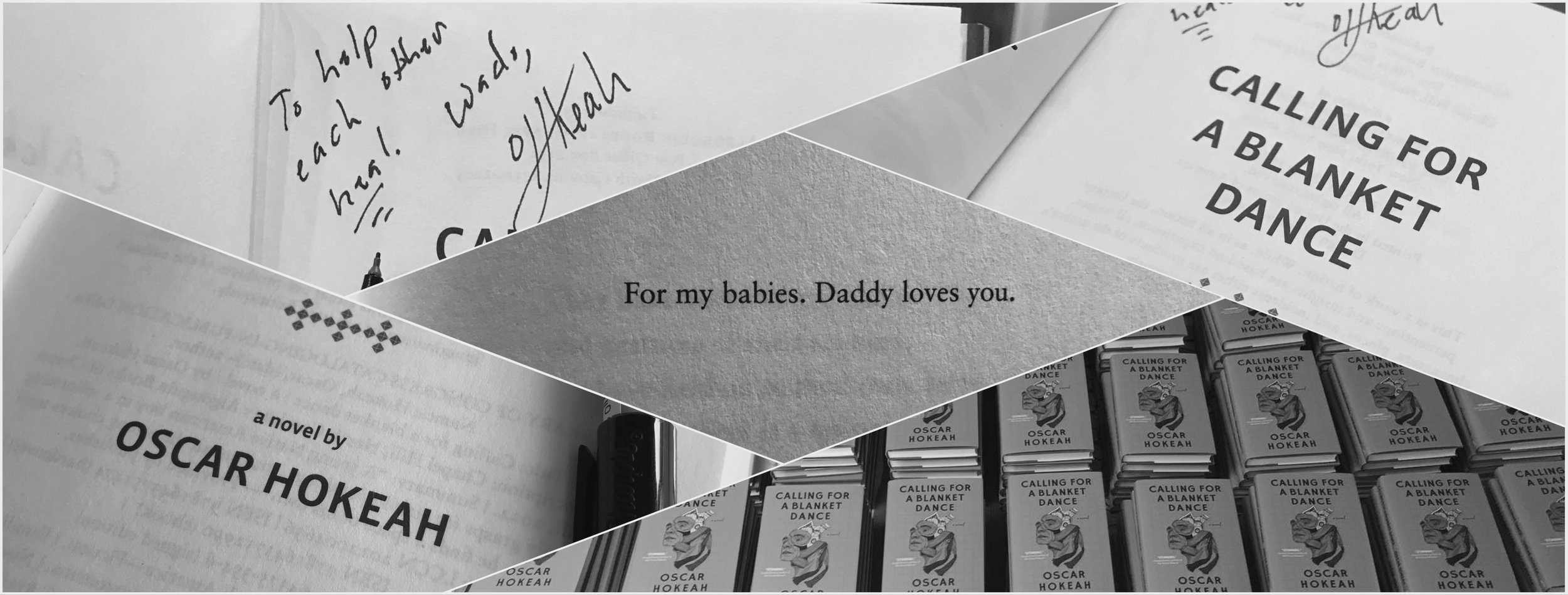Digesting Fragments as Memories: CALLING FOR A BLANKET DANCE
Let me ask you a simple question: What was a significant event in your life? Moreover, how did it impact you, change you, make you into the person you are? What I like most about this question is how it immediately takes us deep into memory. Suddenly a series of memories flood our minds and we rifle through each to determine which might be the most impactful. Now let me switch it on you. What if I asked each of your relatives about the most significant event in your life?

Suddenly, we might have multiple stories. Your grandmother might tell a different story than your grandfather. What about your parents? Your spouse? Your siblings? Your cousins, aunts, uncles? Now we have an entire chorus, a symphony if you will. And in this symphony the music is an ensemble of memory.
“It's enough for me to be sure that you and I exist at this moment.” ― Gabriel García Márquez
One could argue we primarily exist by memory. The memories others have of us. The memories we carry about ourselves. Each moment we share in real time can only be processed in memory. Does this mean there is no here and now? Is memory the only form of existence?

Before I carry on too much longer with all these questions let me say here that my debut novel, CALLING FOR A BLANKET DANCE, allows readers to consider these very questions. The structure of the novel is told by 12 narrators. The main character is Ever Geimausaddle. Each chapter is told by a different family member. We start with his grandmother, Lena, and then move onto his grandfather, Vincent, followed by his uncle, Hayes, and so on and so forth, going through aunties, uncles, cousins, and his sister. Then in the final chapter we hear from Ever himself.
Where the aspect of memory comes into play is the time span between each chapter. Lena tells us a story about when Ever was an infant, while Vincent tells us a story about when his grandson was five years old. Then his uncle follows with one from when Ever was 10 years old. The chapters hop three to five years at a time, and does so into his adulthood, ending when Ever is in his early 30s.
Why would I do this? What's the purpose of spanning so much time between each chapter?
The simple answer: memory. How does our memory work? When I ask you about a significant event, your mind searches for moments in time. It doesn't run in a linear fashion without any breaks from the moment you were born until this very moment. So this begs a bigger question: Do our lives only exist in fragments? If we are simply constructs of memory, how much say do we have in the constructs of our own identity? To my mother, I'm a son, but to my best friend, I'm a brother. In order to truly see into the depths of who we truly are, don't we depend on the memories of others?
“He was still too young to know that the heart's memory eliminates the bad and magnifies the good, and that thanks to this artifice we manage to endure the burden of the past.” ― Gabriel García Márquez
Let the spaces in between each chapter jar you, let them force you into new spaces, let them make you imagine a new version of time--maybe a more honest version of time. Not only will you truly see Ever Geimausaddle as a loving and flawed human being, but you'll forgive yourself for being one too.
“Please — consider me a dream.” ― Franz Kafka
(The image was borrowed from flickr.com)